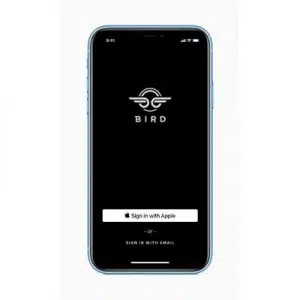The news this week that Square Inc. had misdirected consumers’ digital receipts to the wrong people has prompted some observers to point to new authentication technology as a solution. An emerging option some are zeroing in on is Apple Inc.’s Sign in with Apple, which the company unveiled Monday and plans to launch later this year.
Part of Apple’s upcoming iOS 13 release, the new service will allow Apple users on third-party apps to authenticate themselves with Face ID and also create a proxy to substitute for their real email address. Apple will require that apps offer the option if they enable sign-in through credentials stored at Google or Facebook, for example.

But some experts see potential for the substitute email address, coupled with facial authentication, to not only solve the problem that plagued Square but also to form a new credential that could help authenticate, for example, an Apple Pay transaction. “Nobody thought to tokenize an email address,” says Richard Crone, principal at Crone Consulting LLC, San Carlos, Calif. “But it’s almost as important as protecting your [card number], maybe more important.”
In Square’s case, consumers enter their email addresses online or at the point of sale when they first use their card to buy from a Square merchant. The email option allows them to receive a digital receipt. As reported by The Wall Street Journal on Wednesday, the San Francisco-based processor misdirected a number of these receipts to parties other than the buyers, leading to awkward circumstances in some cases.
A Square spokesman told The Journal that the company has made system corrections that have resulted in a more than 50% reduction in “customer issues.” More changes are “in the works,” the spokesman told the paper.
But there could also be potential for Apple not only to market a token for what would amount to email ID, but also to charge fees that could amount to significant revenue. “The card networks get pinged [for a token] for every transaction. They charge for that. You can bet Apple will do the same,” says Crone. “I wouldn’t sell your Apple stock any time soon.”
But while experts say Sign In With Apple holds much potential, the technology remains very new. The company has not announced plans to integrate the service with Apple Pay, nor has it indicated it has any revenue objectives in mind. An Apple spokesperson did not respond to an inquiry from Digital Transactions News.
Also, while it may help shield Apple users’ privacy, the service will still be limited to Apple devices running iOS 13. That leaves plenty of market share uncovered, including users of Android devices.
Still, miscues like the Square digital-receipt mix-up could spur more developers to address this and related problems. Privacy issues aside, the market incentive, just in terms of the need to address customer inconvenience, certainly seems solid. “It’s far more disruptive to change your email address than to change your credit card number,” argues Heidi Liebenguth, managing partner at Crone Consulting.






